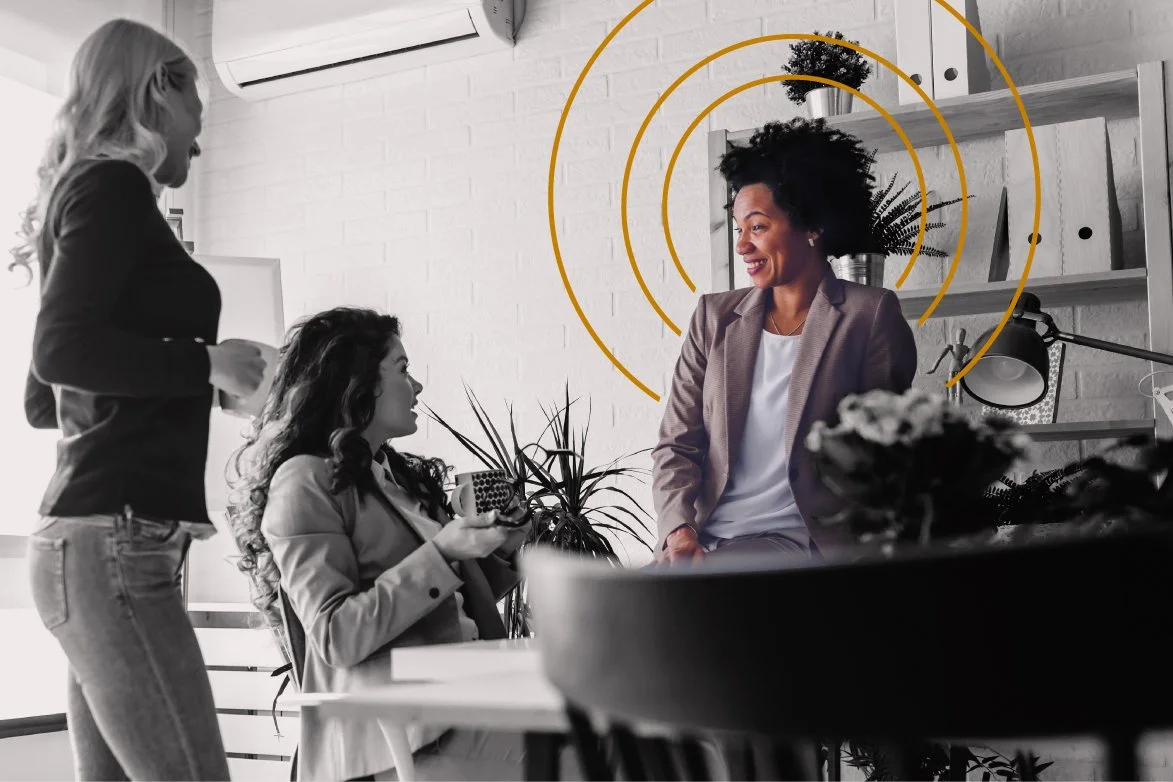Rituals and the workplace experience
What rituals exist around us and how we can lean into them at work?
Shifting the dial
We spend a lot of time at work looking outwards … whether it be trying to empathise with our clients, delivering services to our customers, or developing something to take to market. For a lot of us, this is what core business looks like. How often do we take the time to reflect inwards and bring our expertise to internal workplace challenges? The answer is probably not often enough.
When we think of the companies we’ve idolized over the last decade in the tech space - the Apples, Atlassians and now Canvas of the world - their employee experience says as much about them as their products do. COVID-19 has put our relationship with work back on the agenda for many more organisations. Collectively we are looking for more purpose, challenging the traditional working day and focussing on our experience in the workplace.
Moments that matter: The power of ritual
At the centre of this workplace experience is the concept of ‘ritual’. A ritual is an act that we repeat in a given context, that carries an underlying meaning or value.
Do you have someone in your life that describes making their own coffee as a spiritual experience? Grinding the beans, brewing it, pouring the shot, smelling the aroma. This is an everyday ritual - the humble coffee provides a moment to be present, to reflect and to signal the start of the day.
Adam Cochrane, a service designer and an authority on all things ‘rituals’, draws inspiration from his Pentecostal upbringing - where things like baptisms and Sunday services represented a commitment to faith and community. These days he is looking at how to channel the same sense of belonging into secular experiences at home and in the workplace.
Leaning into rituals at work
If we take a moment to reflect on our own workplace, there are probably some unique things that we do that give us a sense of identity and community. Are there particular ways we start the week? Things we do to celebrate success? Ways we like to welcome new people to the team? Here’s a few examples that other companies are doing to get you started…
Spotify’s ‘fail-fikas’
In Swedish, Fika translates roughly, to drinking coffee, having a break and chatting. So fail-fikas are about getting together, over a coffee and celebrating failures. What a powerful way to let everyone know that it’s okay (even essential) to fail at work!
‘Kit Kat days’ at Dovetail
This growing Australian software company has regular Kit Kat days for their team to ‘take a break’ and switch off from work. Introduced on RUOK? Day, they reflect the value placed on mental health, flexibility and permission to pursue interests outside of work.
Friday ‘Closing time’
A former workplace of mine would play ‘Closing time’ by Semisonic (a cult 90s rock song), over the office sound system every Friday when it hit 4pm - this was the cue to stop working and move to the kitchen for a drink with the team. Whether it made you smile or cringe, this was a light-hearted way to set boundaries and reinforce that there’s more important things than work deadlines.
We are on this journey at WAVE
At WAVE we are working on developing our own rituals, taking the time to think about what makes our culture unique and what the journey for our team should look like. Where are there rituals that we already do subconsciously? Where can we create new rituals that reflect what we are all about? For us it’s about practicing what we preach - we spend our days talking with clients about developing a human-centred mindset, so it’s important we are also focussed on bringing the same approach to creating an internal workplace we are all proud of. It’s worth being mindful that rituals aren’t always inherently positive though, as when developed without empathy for all participants they can be used negatively to exclude and control (but that’s one for future discussion). I want to leave you with a question (and maybe some homework!) - when someone joins your team for the first time, what rituals will they experience on their first day that will make them feel like they belong?
If you are looking for further reading -
Adam Cochrane - Ritual design: From worship to the workplace
https://medium.com/zalando-design/ritual-design-from-worship-to-the-workplace-6c62ad06b509Kursat Ozenc - Introducing Ritual Design: meaning, purpose, and behavior change
https://medium.com/ritual-design/introducing-ritual-design-meaning-purpose-and-behavior-change-44d26d484edf
Mackenzie is a curious human, passionate about using the participatory power of design to reimagine services and the way we deliver them. With a background working on the strategic side of Federal Government, he is always looking for new ways to put the community at the forefront of decision-making.
Get in touch
If you need a proven methodology to identify and solve problems, creating a culture of innovation along the way, we are here to help. We’d love to talk more about what you need and how we’ve helped in similar situations.



